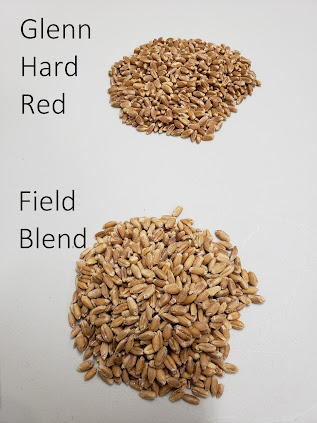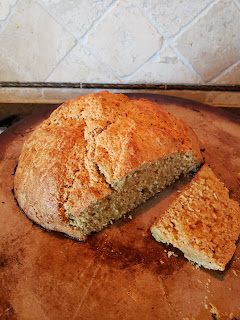
We have two new certified organic wheat varieties available. Glenn is a modern hard red "long-time favorite with bakers for its excellent milling/baking qualities, and high protein and test weight", and in fact ours did test at 15.4% protein (highest of any we have), and gluten index of 89.07. For reference, KSU Wheat Lab has provided us with a typical gluten index of 92.7 for commercial bread flour, and our Spelt and Red Fife tested at 67.2 and 68.8. Field Blend was planted as Einkorn but ended up with a lot of volunteer wheat in the mix. An accidental mix that was created right in the field, however a recent farm tour group rated the flavor of bread from the Field Blend as much better than that of the Glenn. Starting to see a pattern over the past few years - older wheat varieties tend to have better flavor - at least in bread. Field Blend tested at 14.1% protein with gluten index of 74.16. For those with some gluten sensitivity and looking for flavor, Field Blend (o...





